Medical conditions are sidelined during a week at summer camp

This article is part of an upcoming episode of Colorado Experience, you can learn more here.
GYPSUM, Colo. — Driving along a windy Colorado canyon road, the anticipation of arriving at your destination couldn’t be higher. The mountains block your view of the horizon, and every turn only makes you more eager. Finally, a valley opens to reveal Roundup River Ranch Camp.
“We talk a lot about that feeling that you get in your stomach as you drive down Colorado River Road and you see the gates coming,” said Sterling Leija, the vice president of operations at the camp. “We talk a lot about how you can leave camp, but camp never leaves you. And I think part of that is created by that incredible healing power of place.”
Roundup River Ranch Camp is part of the SeriousFun Children’s Network, a global network of camps that provide free summer camps for children with serious illnesses. Actor and philanthropist Paul Newman founded the organization.
“Paul Newman said that he wanted his camps to be a place where kids could kick back and raise a little hell, which is exactly how he would have presented it, and that's the philosophy, I think, that drives us today,” described Dr. Lia Gore, a pediatric oncologist, volunteer physician and board of directors' member.
Roundup River Ranch Camp, which sits at a little over 6,000 feet in altitude so it’s not too high for various medical conditions, first welcomed campers in 2011 after several years of building not only the infrastructure but also the culture.
History of the land
The camp is located about eight miles north of the Dotsero exit on I-70 and situated in a valley along the Colorado River that for thousands of years served as the home for the Ute peoples.
“We actually have a pretty large piece of the property that [we] will never develop because of its historical significance. We've found signs of the campfires and arrowheads and other things like that, and it's so important to us to preserve that history,” said Leija.
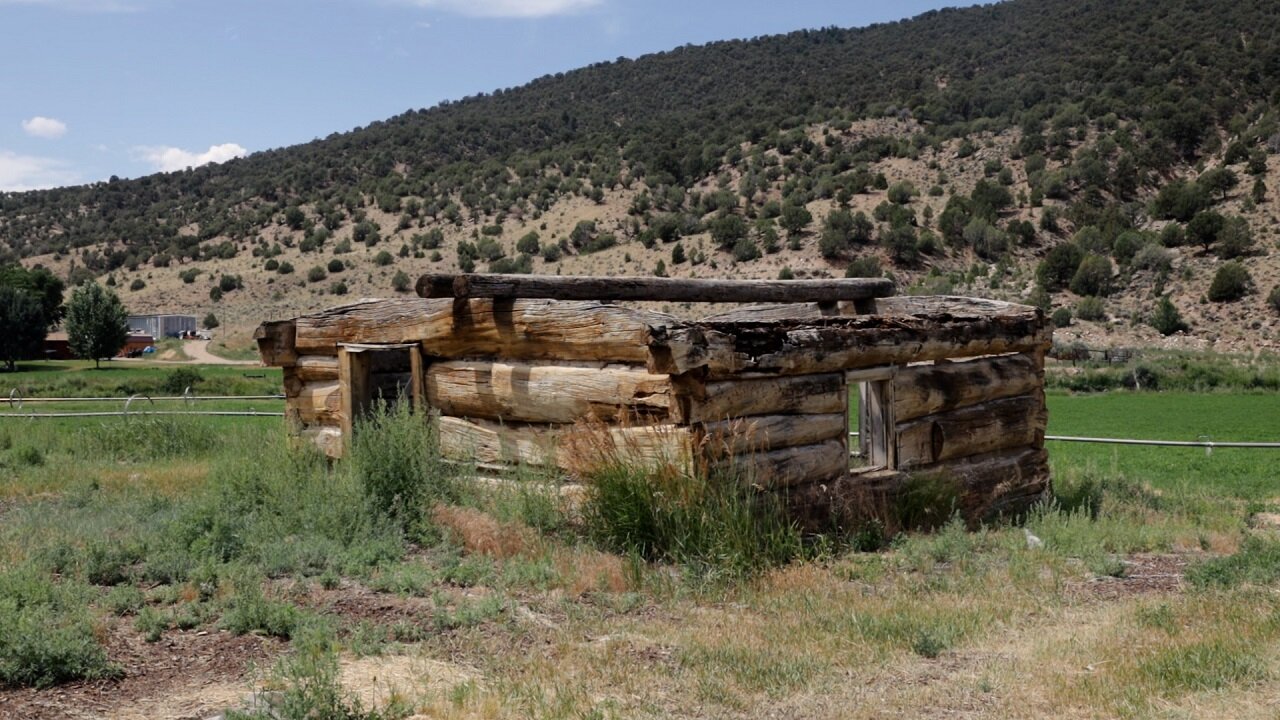
The oldest standing structure on the Roundup River Ranch Camp property is this beaver trapper’s cabin. Photo by Alexis Kikoen, Rocky Mountain PBS.
The oldest structure on the property, a trapper’s cabin, reveals the next chapter of the land’s history. Beaver trappers moving through the valley along the Colorado River used the cabin.
A 500-square-foot homestead cabin built at the end of 19th century still stands on the camp property and is the second-oldest structure on the grounds. Several different families lived in the cabin including the Stout family, with their 11 children, who moved in shortly after the turn of the century.
One of the Stout children was still alive when Roundup River Ranch Camp purchased the land and shared stories of the cabin and land. For example, Mr. Stout wasn’t a fan of childbirth, so when Mrs. Stout went into labor, he would leave the cabin. After Mrs. Stout gave birth, she would reportedly shoot a gun to signal to her husband that it was time to come meet their new child.
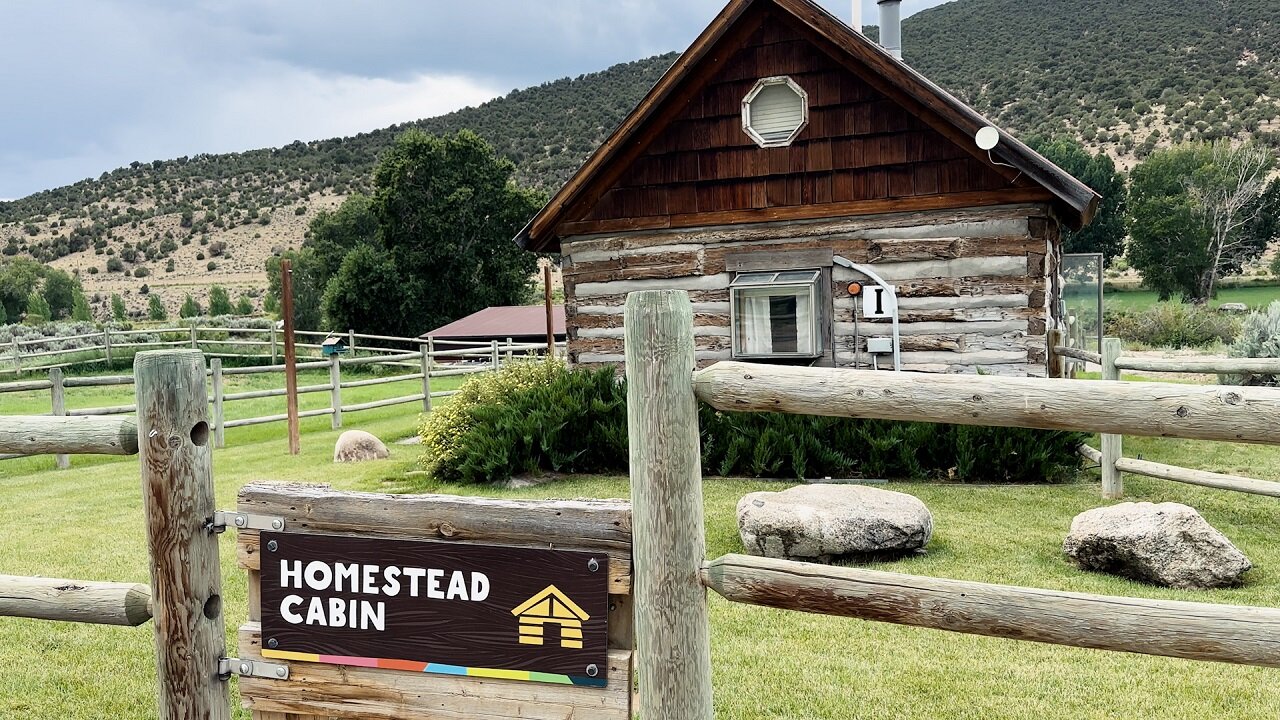
The homestead cabin was built in the late 19th century and is still a part of the camp today. Photo by Alexis Kikoen, Rocky Mountain PBS.
Since that time, the cabin has been home for many other families, including Leija, who moved in with her two kids when she first came to work for the camp. Luckily for Leija, the cabin had indoor plumbing and modern kitchen appliances by that time.
“It really, truly was a big adventure,” said Leija of living in the house. “They still talk about it to this day and what an incredible introduction to camp and the property and living in the Rocky Mountains.”
The camp property has one more piece of history — the railroad. While the Colorado River borders the camp on the west side, the east side is flanked by what is now the Rocky Mountaineer rail line, which was part of the Denver and Rio Grande Western Railroad company founded in 1870. Passenger lines continue to come through the valley and will often stop to give riders a chance to wave at the campers.
“We love the railroad so much that it's been incorporated into just about every piece of camp,” said Leija. “We have a caboose that's a library, and we joke that we have probably the only caboose in the United States that is also a pharmacy.”
Daily operations of camp
Roundup River Ranch Camp offers a wide variety of experiences for kids with serious illnesses. They also host family camps where entire families are invited to stay for a week. However, the main attraction is the six sessions of summer camp.
Each five-day session groups kids with shared diagnoses together so the camp can staff the proper nurses or doctors and adjust the food offered as needed.
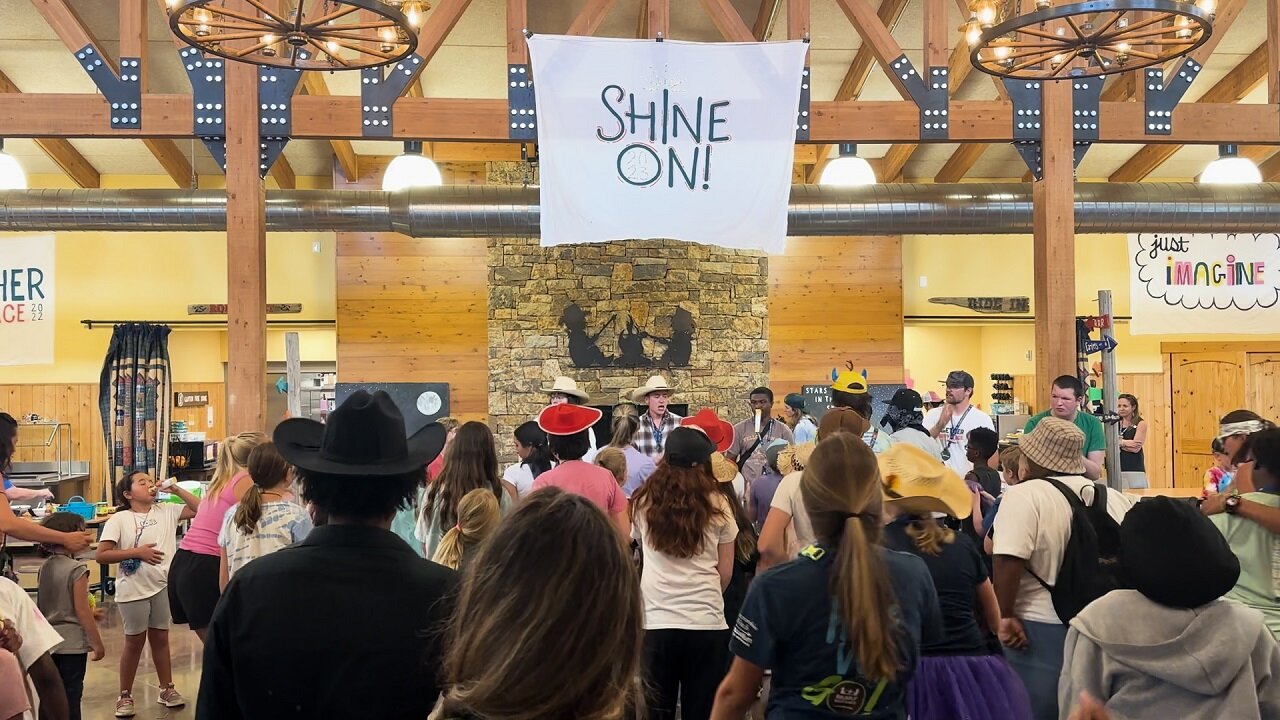
Campers gather after a meal to sing and dance together. Photo by Alexis Kikoen, Rocky Mountain PBS.
Rocky Mountain PBS visited the camp as it hosted children with certain blood disorders, cancer, and sickle cell disease. Each cabin of 12 children has at least two camp counselors and a cabin nurse dedicated to that group of kids. The counselors guide the kids to activities and meals and provide other support. The nurse delivers medicine directly to each camper.
“We go to them, we deliver their medicines at their activities or at their meals or at their cabins, rather than making everybody come down to the depot to feel like a patient again,” said Gore. “The whole goal is at the end of the week; nobody feels like a patient.”
The depot, a medical center on campus, equipped with the number of beds and medical equipment that a small hospital might have, serves as a treatment center in case one of the campers needs more serious attention. It mostly sits empty throughout the week.
The medical staff — from full- time employees to volunteers — check in with each cabin every morning to make sure campers are taking their medicine, eating properly, and not having any other issues.
“These kids live most of their lives and certainly their illnesses with being told what they can't do. And so, it's really important for us to talk about what they can do. And as a part of that, it really comes down to what can we do to support this kid to give them the best day possible?” explained Gore.
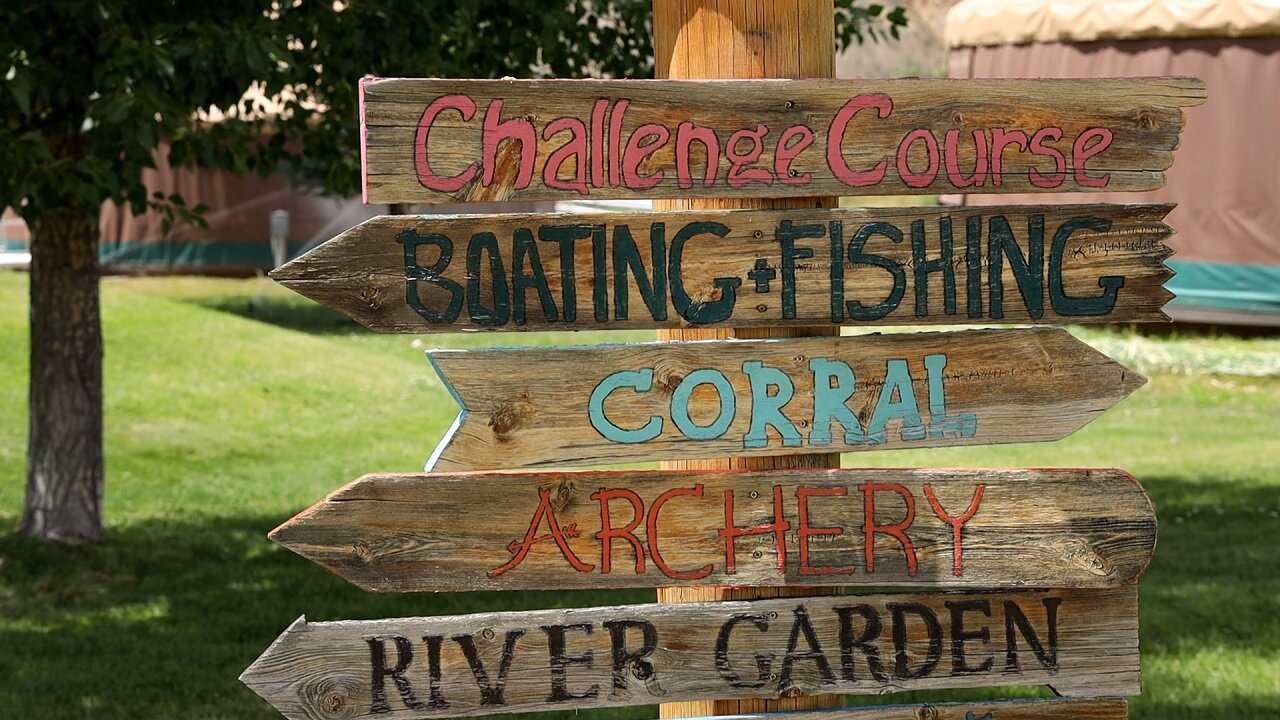
Roundup River Ranch Camp offers a wide range of activities throughout the week of camp. Photo by Amanda Horvath, Rocky Mountain PBS.
From rock climbing and zip lining, to archery, boating, arts and crafts and nature walks, the activities are the campers’ favorite part of Roundup River Ranch. The rock wall and zipline stand out as favorites.
“The top activities for me, that will have to be basically the zipline, maybe archery… There's also fishing. I caught my first fish there – fun fact,” explained Greyson Saunders, a 13-year-old camper.
Even dinnertime at the camp is fun. During “dessert first, no-hands spaghetti dinner” the kitchen first serves slices of multi-tiered chocolate cake followed by plates of spaghetti, all without any utensils.
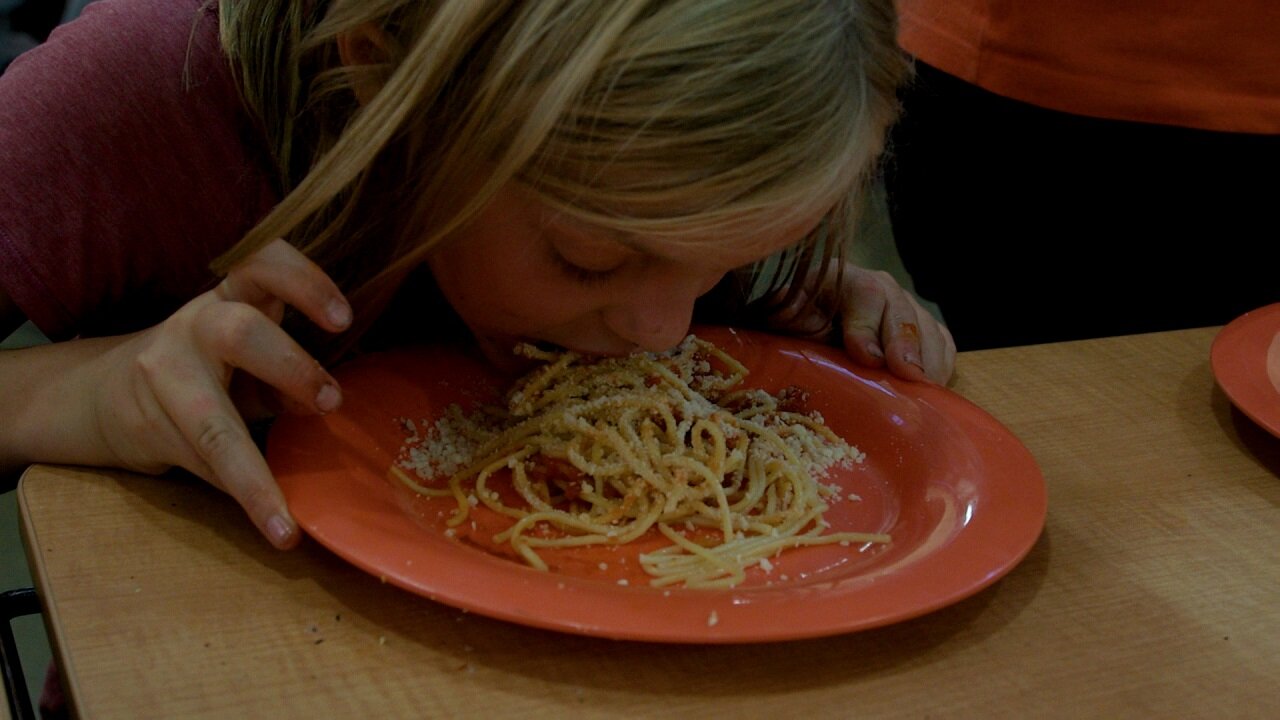
Maggie Bamesberger loves the no-hands spaghetti dinner one night a week at camp. Photo by Alexis Kikoen, Rocky Mountain PBS.
Food plays a very important role during the kids’ time at camp since many of the kids often have dietary restrictions due to their diagnoses. Many of the campers are also more active than during a typical week at home and need good nutrition.
“I think the record that [the food service manager had] one summer was we had 63 kids at camp and there were 48 different diets that she had to really be very cognizant of whether or not a severe food allergies or intolerances or medication interactions,” said Gore.
Mary Shadrix, known as Chef Mary around camp, is the food service manager. She said the key to successfully keeping track of all the dietary needs is her “bible," a binder full of each kid’s dietary restrictions.
Greyson was one of Chef Mary’s biggest fans because he is gluten free and on a low-histamine diet. He often ate plain chicken breasts with iceberg lettuce and loved every bit of it.
“I mostly eat salad. If you don't like salads, just try iceberg lettuce,” he said.
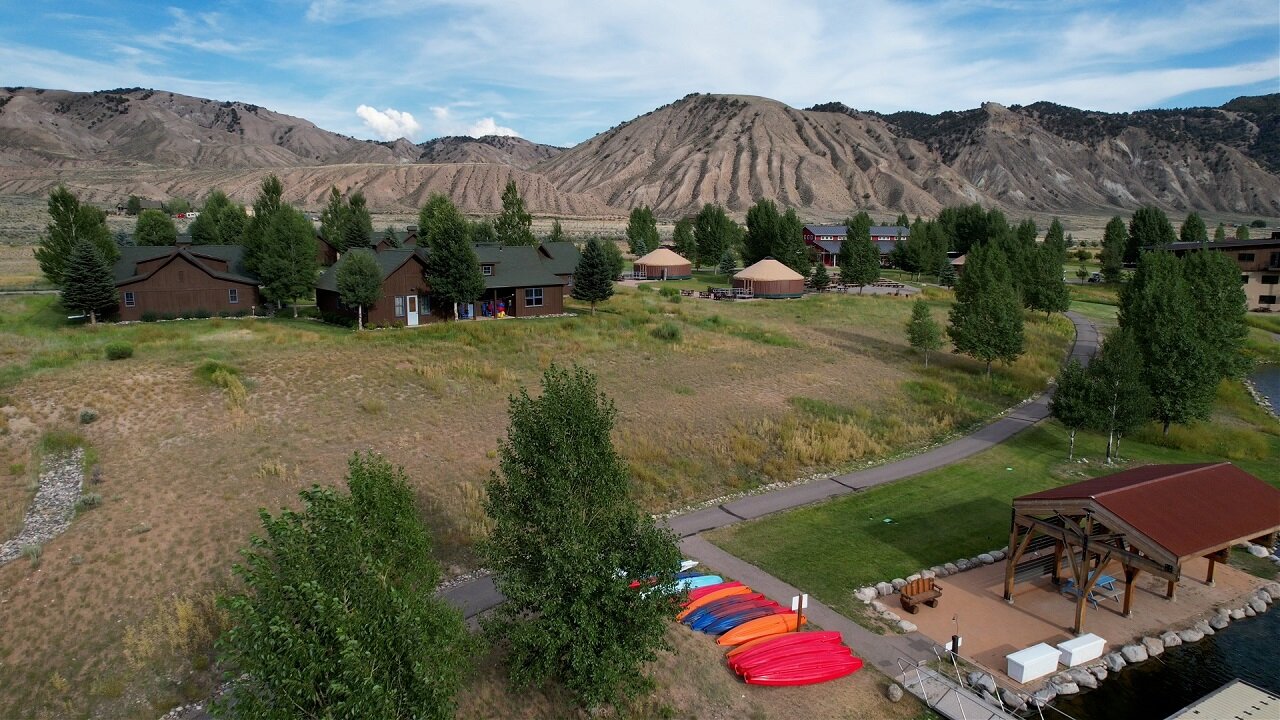
Roundup River Ranch Camp is working to double in size to include a total of 12 camper cabins. Photo by Jeremy Moore, Rocky Mountain PBS.
Future of camp
Sixty-six percent of parents of a child who attended a SeriousFun Camp reported that their child demonstrated an increased interest in social activities following camp, 79% reported noticing increased confidence levels, 77% reported increased self-esteem, and 64% reported an increased sense of belonging.
“We know that when campers go home, they are more likely to follow their dietary plans. They're more likely to take their medications, they're more confident, they are more likely to make friends, are more likely to join clubs at school and it's that sending kids home a little bit better, a shined-up version of exactly who they are,” said Leija.
Right now, Roundup River Ranch is only half-built in Leija’s mind. There are currently six cabins that can house 12 kids each. They plan to double capacity and build six more cabins, which starts with groundbreaking this fall for three more cabins that will hopefully be ready for use in 2025.
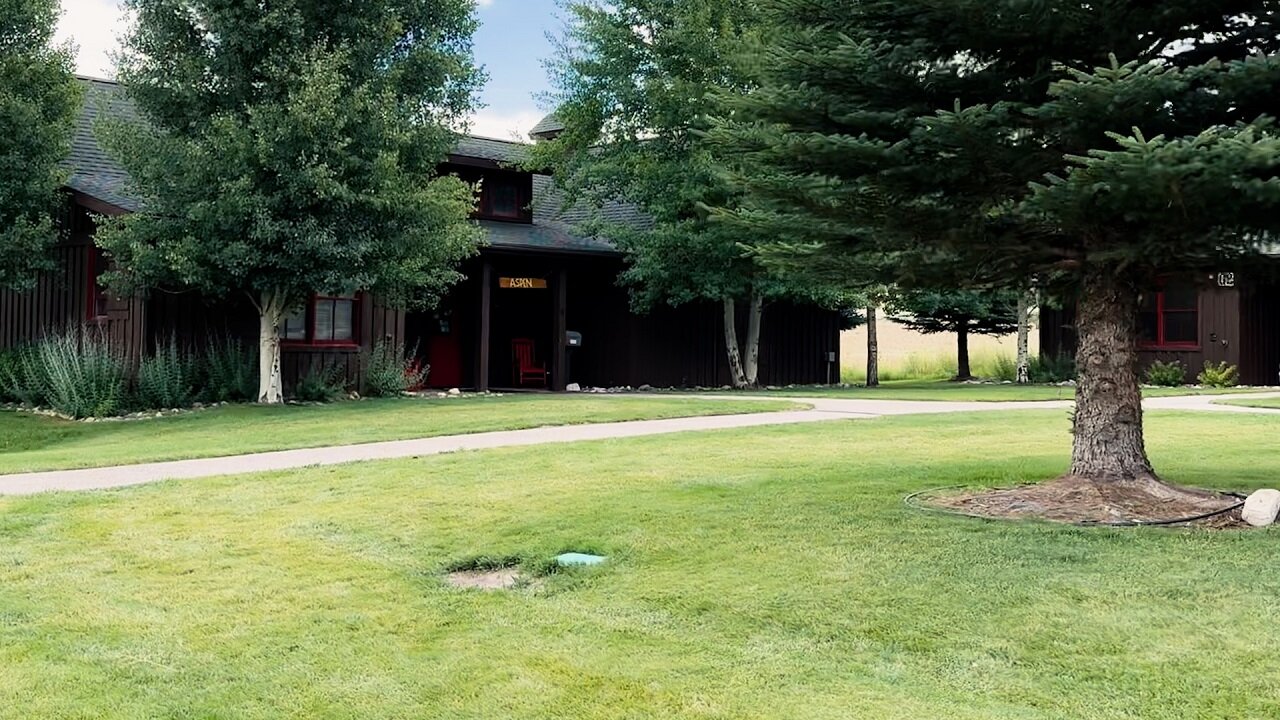
Each cabin at Roundup River Ranch Camp can house up to 12 campers. Photo by Alexis Kikoen, Rocky Mountain PBS.
The camp also hopes to expand by offering more activities year-round, all while continuing to provide this experience to families for free.
“Our families have incredible medical bills and strain financially because of their children's diagnoses, and it's so important to us that there's not a financial barrier to camp,” Leija explained.
Roundup River Ranch camp’s current goal is to raise $27 million to support the growth and sustaining goals for the organization.
“This is the place where everybody finds that piece of themselves that means so much,” said Gore. “When you watch it happen for kids, that's the part that's so amazing. I've told people that the two things that I'm most proud of in my life are my son and camp.”
Amanda Horvath is the managing producer at Rocky Mountain PBS. You can reach her at amandahorvath@rmpbs.org.
